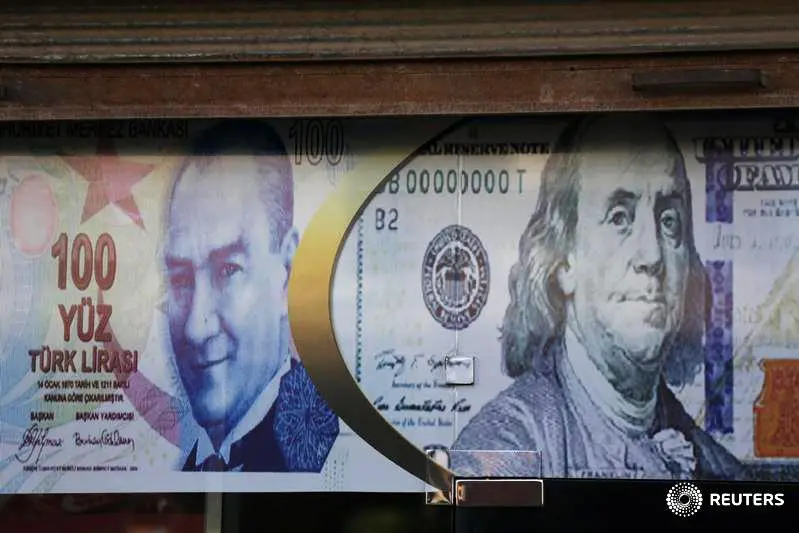PHOTO
Having suffered its worst year in nearly two decades in 2018, Turkey's lira was earmarked by many as the "comeback kid" of this year - with local policymaking getting the benefit of the doubt at last and global currency markets calming.
But January so far has proved a far more uncomfortable affair.
Turkey's toxic cocktail of regional political tension, domestic governance worries and monetary and fiscal policy uncertainty continues to frustrate any attempted rebound.
And the hangover from the 2018 currency collapse has still to hit the local economy with full force, testing the central bank's resolve in being able to keep interest rates at current punitive levels to defuse the lira-fuelled inflationary surge.
Rising tensions with its NATO ally, the United States, fears that the central bank could cut rates too early - it meets for the first time this year on Wednesday - and a government willing to loosen the purse strings in the run-up to municipal elections in March have seen the lira underperform its peers.
"If the market concerns subside in the coming days, then maybe the lira would stabilize as well, but I think what is more important is the continuation of these factors, and some of them will be with us clearly for the time being," said Inan Demir at Nomura.
Below are five charts that illustrate the recent selloff and foreign investors' involvement in Turkey's $631 billion economy.
LANGUISHING LIRA
Following six straight years in the red, the lira has slipped 3 percent year-to-date, making it the worst performing emerging market currency so far in 2019.
The latest relapse started when Japanese retail investors, who had put money back at stake in Turkey in late 2018, sold out dramatically on Jan. 3, pushing the lira nearly 10 percent lower against the yen. According to Tokyo Financial Exchange data, Japanese retail investors cut net lira long positions by 42,743 contracts that day, the most since the August 2018 selloff.
"Japanese retail investors whose appetite for carry trade offered by EM currencies tends to cause havoc when inevitably they get caught on the wrong side of the trade by market volatility," said Rabobank's Piotr Matys.






















